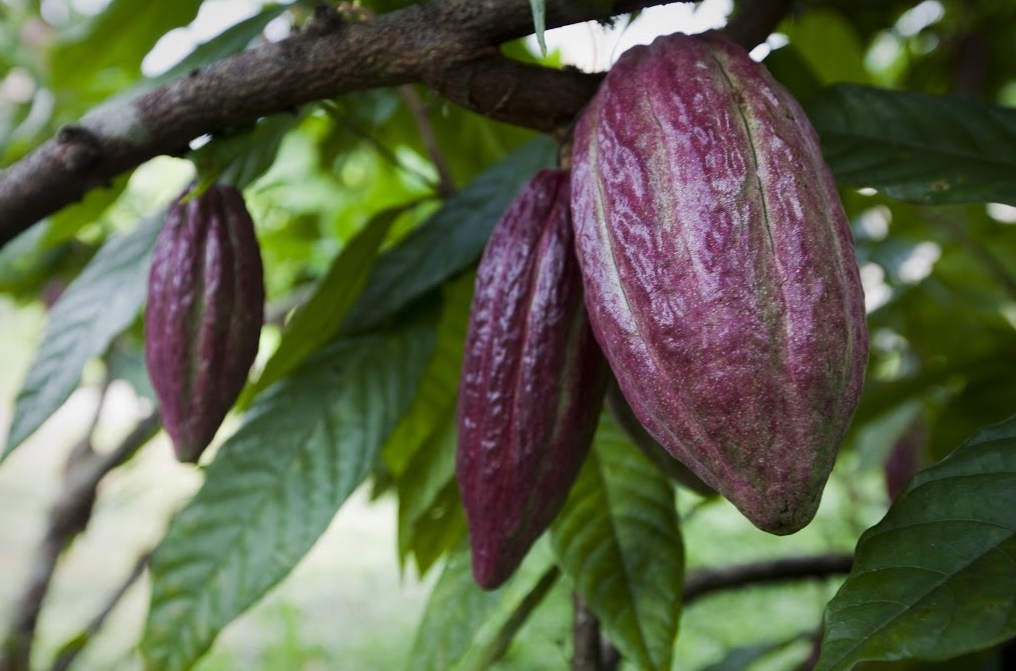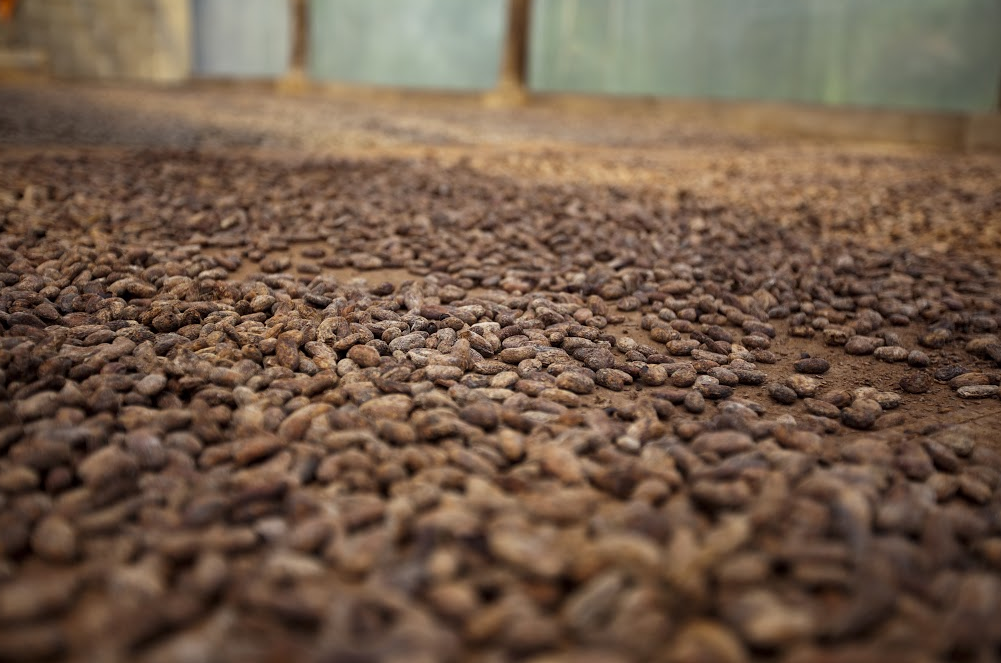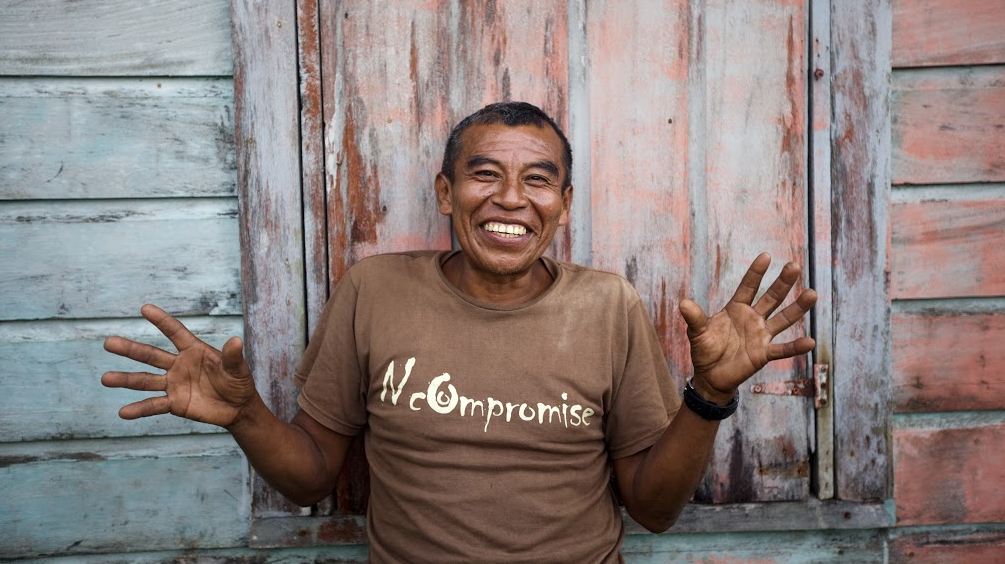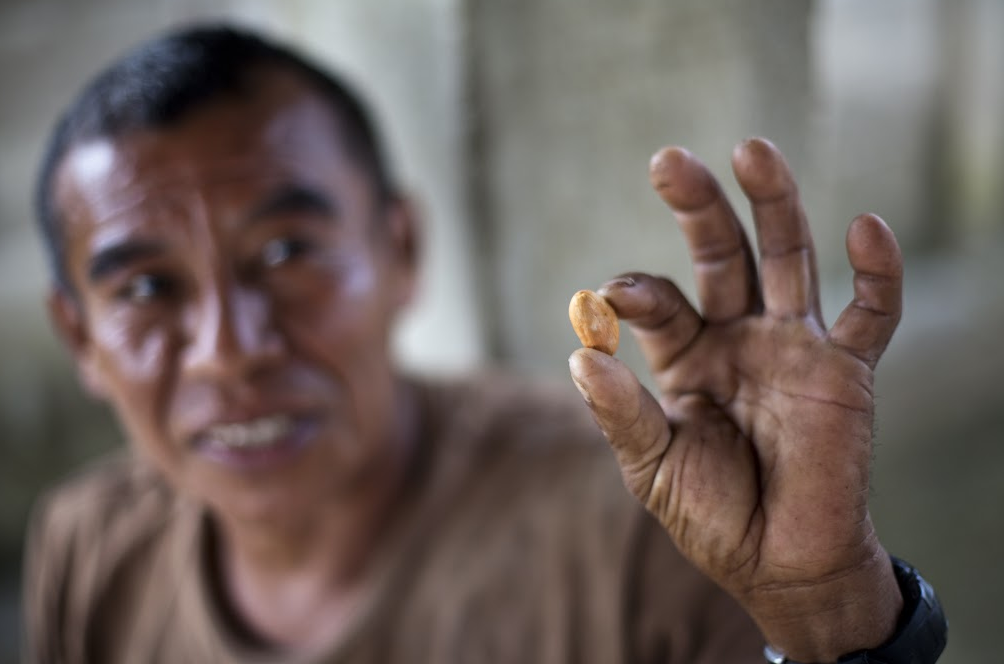This is a guest post by Emily Stone, the managing director at Kiva partner Maya Mountain Cacao in Belize. MMC supports cacao growers in the country to improve their livelihoods and get their high-quality product to market.
Chocolate. Dark brown, delicious, sweet, creamy, cocoa-loaded delights. Brownies, cookies, mousse, tarts, cakes, ganache. Candy bars, truffles, and bonbons.
This is the chocolate that we all know and love. Given as gifts between couples, used to celebrate special events, and craved by the masses sitting at school desks and work desks around the world.
Well, I’m posting today to tell you: chocolate is even better than you thought. You who love chocolate, did you know that this delectable melty goodness is actually made of the seeds of a tropical fruit from a tree that grows naturally under the shade of the rainforest? Did you know that cacao is easily grown using organic practices, and many cacao farmers do not use any chemicals on their trees? Did you know that there are Mayan farmers, whose ancestors thousands of years ago farmed the chocolate fruit (scientific name: Theobroma cacao, literally “food of the gods”), still producing these seeds today?

Cacao pods as they grow on the tree.

The seeds are dried indoors, often using solar warmers.
Cacao is a magical and mysterious tree, with brightly-colored Nerf-shaped fruit pods shooting directly out of its trunk and branches. Opening up the pods reveals dripping, juicy white fruit segments, each one containing its own glossy purple orb seed. All of the chocolate in the world comes from these cacao seeds.
Buying and eating chocolate connects you with this amazing tree of the gods, and with the people who cultivate it in long-term biodiverse plantings known as “agroforestry.” Agroforestry enables farmers to provide shade for their young cacao trees through cultivation of banana, coconut, papaya, and other fruit or hardwood trees, which they can then trim back as the cacao trees get older and require more sunlight.
There are over 5 million cacao farmers around the world that rely on cacao farming – and your chocolate consumption – to feed and educate their families. They live in places as diverse as Indonesia, Nigeria, Bolivia, Jamaica, Ghana, Ecuador, Venezuela, Hawaii, and Belize. Nearly every country that falls between the Tropics of Cancer and Capricorn grows some amount of cacao trees.
For many cacao farmers, life is not easy. In Belize, for example, Maya Mountain Cacao works with a network of over 200 certified organic indigenous Maya cacao growers, nearly all of whom are subsistence farmers. The income from their cacao sales is used for their children’s education and basic household needs. There is not a lot of extra cash around.

Kiva loans go to farmers like Eladio (pictured) to help them improve their crop yields and boost their income.

Cacao is a powerful driver of sustainable development. Organic cacao-based agroforestry provides an economic incentive for rural communities to preserve tropical forests, improving farmer livelihoods while opening up opportunities for families to invest in their farm as their own business. In Belize, our partnership with Kiva is enabling farmers who otherwise would not have access to credit invest in expanding and improving their organic cacao agroforestry plots, so they can bring in more income from high-value chocolate markets to improve their livelihoods.
For this positive cycle of forest preservation and entrepreneurism in rural communities to continue, we just need you to do one – ok, two things.
1. Eat more chocolate, and look for chocolate brands that tell you where their cacao comes from and have information on how they source it.
2. Look for and lend to Kiva clients that are using money to expand and improve their organic cacao farms.
The more organic cacao farmers in this world, the more our tropical forests will stay intact, and the better chance we all have for achieving the critical sustainable development goals of alleviating poverty and empowering rural communities. And, the more delicious, high-quality chocolate there will be for everyone!
Make a loan to a Maya Mountain Cacao farmer today.
Have questions? Send them our way at blog@kiva.org.
PREVIOUS ARTICLE
Passport Series: Kiva partners offer innovative solutions in Rwanda →NEXT ARTICLE
7 Questions on Growing Social Enterprises in Vietnam →














